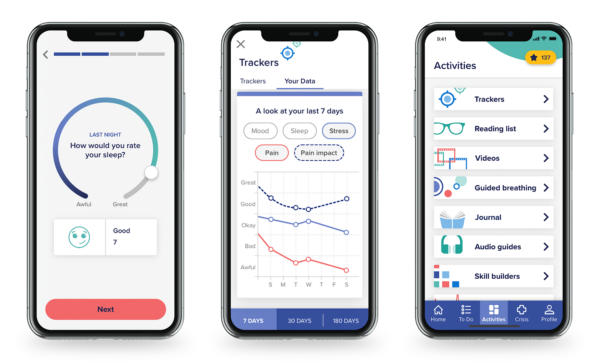
Conshohocken, Pennsylvania-based Trinity Health Mid-Atlantic and Independence Blue Cross Foundation are collaborating on a new program with mental health software provider NeuroFlow to tackle healthcare worker burnout.
The program will provide access to Philadelphia-based NeuroFlow’s technology for more than 1,800 nurses and frontline workers across three Trinity Health Mid-Atlantic hospitals in Pennsylvania: Nazareth Hospital in Philadelphia, Mercy Fitzgerald Hospital in Yeadon and St. Mary Medical Center in Langhorne.
Independence Blue Cross Foundation, a charitable organization and subsidiary of Independence Health Group based in Philadelphia, is funding the program.
Frontline healthcare workers at the three hospitals will be able to use NeuroFlow’s app to log daily insights, from sleep patterns to mood scores, as well as journal about their experiences and access content about stress and anxiety, among other mental health issues.
“Nearly every day there’s a new article or study highlighting the issue of clinical burnout in the U.S.,” said Chris Molaro, founder and CEO of NeuroFlow, in an email. ” Stress and anxiety are part of all of our lives, but we now have the tools to be able to measure and track it, while promoting a lifestyle of holistic wellness.”
A clinical care team will monitor health trends on the app and step in when healthcare workers indicate they need higher levels of support. NeuroFlow will also measure symptom improvement among users.
The ongoing pandemic has decimated the mental health of healthcare workers across the globe. In the U.S., more than half (56%) of all frontline workers say that worry or stress related to Covid-19 has caused them to experience trouble with sleeping, frequent headaches or stomachaches (31%) or increased alcohol or drug use (16%), according to a survey conducted in February and March by The Washington Post and Kaiser Family Foundation.
Nurses, in particular, are struggling, new research shows. In the week before a survey conducted last September, nurses reported an average of 3.1 days of feeling anxiety, 1.8 days feeling withdrawn and 2.7 days of difficulty in sleeping.
“The ultimate goal of this launch is to help the nurses who help us when we need it the most — fostering a more resilient nursing program who are overall healthier and happier,” Molaro said.
Trinity Health Mid-Atlantic hospital employees will be able to access the NeuroFlow app starting this week. The health system will then evaluate whether to expand the program further than the three initial hospitals.
“We are confident [NeuroFlow has] the expertise and experience to make this program successful with Trinity Health,” said Stephen P. Fera, executive vice president of public affairs at Independence Blue Cross, in an email.
NeuroFlow has implemented similar programs with branches of the U.S. military, including the Air Force. It also has contracts with other health systems and insurers and is currently supporting 450,000 individuals across the country.
Photo: NeuroFlow










